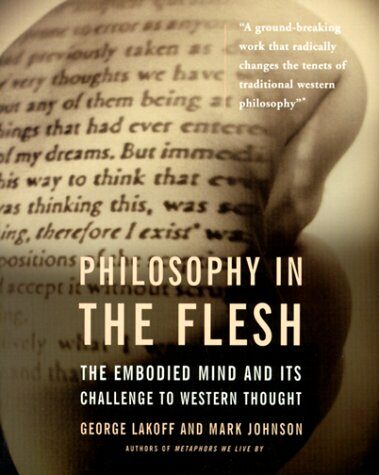
Just read this great quote that sums up the basics of the embodied mind approach in very simple terms - obviously, Lakoff will spend the rest of the book proving this, but it makes for a great soundbite (or at least one you can read).
The claim that mind is embodied is, therefore, far more than the simpleminded claim that the body is needed if we are to think. Advocates of the disembodied-mind position agree with that. Our claim is, rather, that the very properties of concepts are created as a result of the way the brain and body are structured and the way they function in interpersonal relations in the physical world.
The embodied-mind hypothesis radically undercuts the perception/conception distinction. In an embodied mind, it is conceivable that the same neural system engaged in perception (or in bodily movement) plays a central role in conception. That is, the very mechanisms responsible for perception, movements, and object manipulation could be responsible for conceptualization and reasoning. Indeed, in recent neural modeling research, models of perceptual mechanisms and motor schemas can actually do conceptual work in language learning and in reasoning. This is a startling result. It flies in the face of time-honored philosophical theories of faculty psychology and their recent reincarnation in strong modularity theories of mind and language, each of which insists on a separation of the mechanisms of perception and conception.
Philosophy in the Flesh, sections 510-528 (sort of)
Tags:
No comments:
Post a Comment